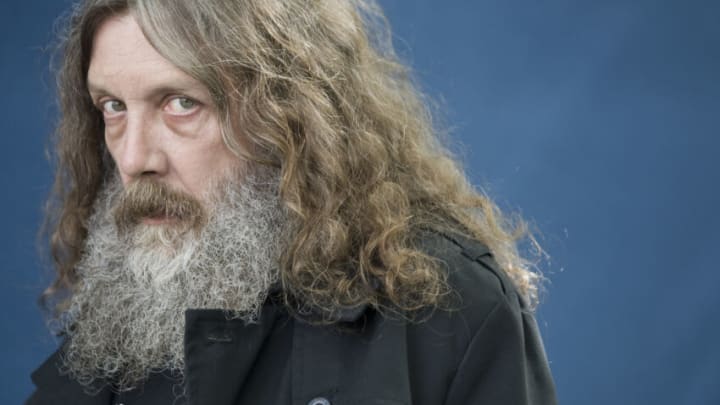Alan Moore is undoubtably one of the most influential comics creators alive today. The guy wrote Watchmen, V For Vendetta, Batman: The Killing Joke, and much more. He had a huge hand in shifting the tone of comics to a darker, grimmer, more “grown up” place.
Although Moore himself would take exception to describing it like that. The 68-year-old is long done with comics, telling The Guardian that while he will always love the medium, “the comics industry and all of the stuff attached to it just became unbearable.”
“All the stuff attached to it” likely includes the explosion of superhero movies and TV shows we’ve seen in the past decade and change, which Moore is not a fan of. “Hundreds of thousands of adults [are] lining up to see characters and situations that had been created to entertain the 12-year-old boys – and it was always boys – of 50 years ago,” he said. “I didn’t really think that superheroes were adult fare.”
"I think that this was a misunderstanding born of what happened in the 1980s – to which I must put my hand up to a considerable share of the blame, though it was not intentional – when things like Watchmen were first appearing. There were an awful lot of headlines saying ‘Comics Have Grown Up.’ I tend to think that, no, comics hadn’t grown up. There were a few titles that were more adult than people were used to. But the majority of comics titles were pretty much the same as they’d ever been. It wasn’t comics growing up. I think it was more comics meeting the emotional age of the audience coming the other way."
Alan Moore worries that superheroes can encourage “infantilization…that can very often be a precursor to fascism”
But it gets worse. Moore thinks that this love of superhero media could presage something dangerous. “I said round about 2011 that I thought that it had serious and worrying implications for the future if millions of adults were queueing up to see Batman movies,” he said. “Because that kind of infantilization—that urge towards simpler times, simpler realities—that can very often be a precursor to fascism.”
It’s true that more and more countries around the world have been leaning towards authoritarianism over the past several years, and that this has coincided with the rise of superhero movies…although I’d question whether correlation equals causation here. Hollywood chases whatever makes money, and when people have tired of superheroes I imagine they’ll find some new cow to milk.
That said, sure, I can see how superheroes and fascism might dovetail. The idea that powerful, superhuman heroes can save us from something like crime, which is an incredibly complex phenomena caused by a whole host of sociopolitical factors, is a comforting fantasy; it’s also a fantasy a lot of would-be authoritarian leaders try to sell, the idea that they and they alone can fix complicated problems through sheer force of will. So I think Moore has a point, but also, I don’t think democracy is in danger because people see too many Batman movies. Or at least, if we want to save democracy, that’s not the first, second, or third problem to be addressed.
As for Moore’s long face-off with the comics industry, he does think comics have had some positive influence…or at least, his own have. For instance, he basically approves of people adopting the Guy Fawkes mask from V For Vendetta as a symbol of resistance. “I can’t endorse everything that people who take that mask as an icon might do in the future, of course. But I’m heartened to see that it has been adopted by protest movements so widely across the world. Because we do need protest movements now, probably more than we’ve ever done before.”
Moore is always good for an interesting take. His new book of short stories, Illuminations, is out now.
To stay up to date on everything fantasy, science fiction, and WiC, follow our all-encompassing Facebook page and sign up for our exclusive newsletter.
Get HBO, Starz, Showtime and MORE for FREE with a no-risk, 7-day free trial of Amazon Channels
